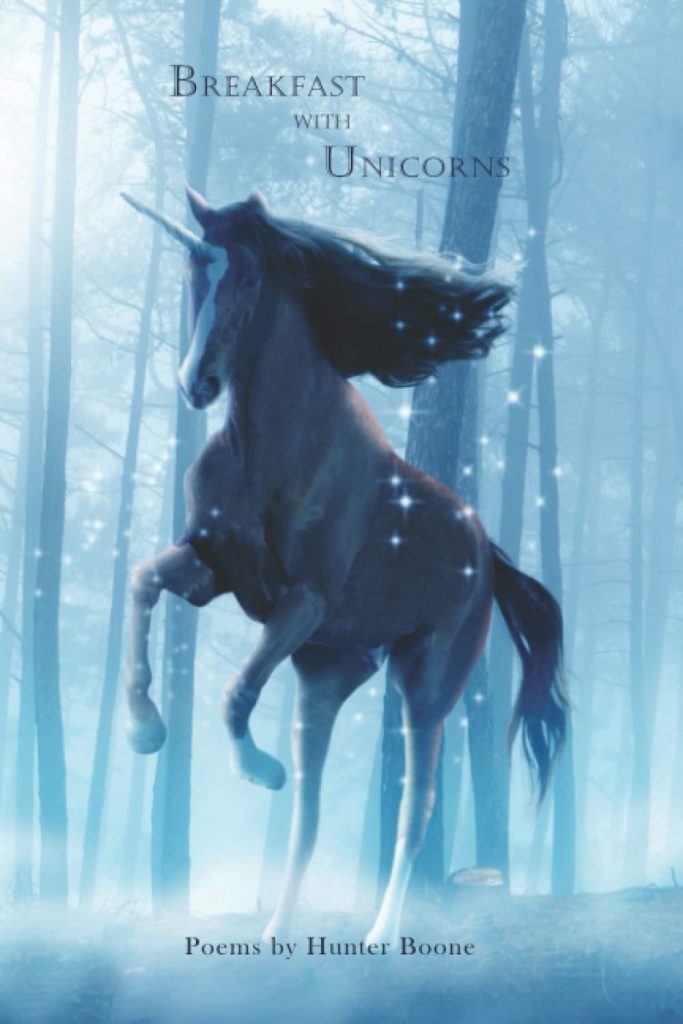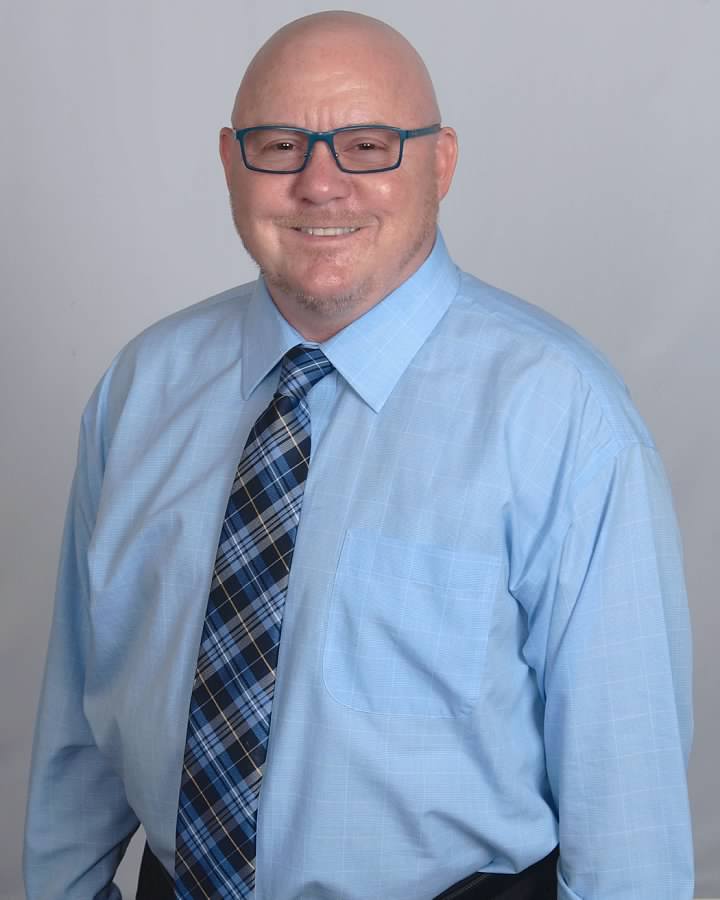
Hunter Boone has worked as an attorney and private investigator, and lives and works in Kalamazoo, MI. He now concentrates his work primarily on poetry and fiction. His work has appeared in Ink Pantry, The Opiate Magazine, Rougarou, Projected Letters, Former People, West Trade Review and others. When he is not writing he enjoys playing the piano and composing music on his Yamaha P-125 keyboard.
Tell us about your debut poetry collection, Breakfast With Unicorns
Breakfast With Unicorns is a quintessential amalgam that showcases my best work over the past thirty years. Its subject matter includes poems of loss and longing, rejection and sorrow and I think its theme (if there is a theme to it) is one that invites the reader to confront our existential predicament – the predicament of being human in a too frequently inhumane world, a world that we are thrown into, ready or not.
Could you share one of your poems and walk us through the idea and inspiration behind it?
Well, yes – for starters, who hasn’t had a crush at one time or another on a brilliant, seemingly unobtainable professor? Or maybe this is just my unique, self-inflicted penchant for suffering. At any rate, I think my poem, “Ms. Alligator” illustrates the kind of frustration and disillusionment that is often the result of an unrequited love or mis-matched affection:
Ms Alligator
She had the emotional presence of a toothpick,
the personality of a comatose eel . . .
A woman I desired
read Antigone
which she encouraged me to do, so I
did. When I came upon, “Teiresias,” I said,
“I can’t spell that,” she said,
“Look it up.” Somewhere.
She became that woman
you wouldn’t expect –
out of proportion
to everything else.
When she moved
her body slid –
of a piece – which caused a problem.
The ground upon which she walked
swayed and swelled
people running,
different directions
up and down the boulevard
while the other women – kinder,
nobler, gentler
with foreign accents
showed themselves open,
not nearly as dubious –
yet this one stuck
hardened within her molten core –
sad – yet oh so beautiful
in a glittering sort of way with
beckoning, surreal
blue tourmaline eyes
that rolled back into her head
as she spoke
incomprehensible
and inhuman things –
enticements thick with ice from
this sorry sophist and enigmatic soul
you couldn’t poke through
though I tried many times.
As the poem indicates, the woman who is the focus of the protagonist’s
affection is cold and indifferent, reptilian. And yes, like a comatose eel.
The use of metaphor and simile illustrate the harsh reality of what the protagonist has endured as the result of this encounter and leaves no doubt in the reader’s mind about the outcome; in the end the protagonist does not get the girl (or the reptile in this case).
The idea behind the poem is based on my personal experience of having gotten in “over my head” and fallen in love with my intellectual mentor, a professor who was at once beautiful yet unexpectedly cold. This is a modus operandi and course of action I do not recommend for anyone.
What’s your creative process?
My creative process often starts with a lyrical impulse, a phrase, or a poem title. The title or phrase typically comes out of an emotional experience or some intellectual matter that is yet unresolved within myself. I work out the poem as I write; it rarely comes, “full cloth.”
Tell us about your BA in Creative Writing.
I was extremely lucky (and there’s no other word besides “lucky” to describe it) to have had extraordinary mentors as an undergraduate. The most influential and helpful was Eve Shelnutt who was from South Carolina and taught for years at the College of the Holy Cross near Boston. She left me with many memorable lessons but her most valuable words, a kind of mantra I carry with me were:
“There’s nothing to replace a sense of integrity about one’s work.”
What are you reading at the moment?
I am currently reading the collected works of F. Scott Fitzgerald.
I do think it’s important for a poet to find both poets and fiction writers to contribute to the poet’s repertoire. Especially with a writer like Fitzgerald, whose prose is lyrically haunting and so beautifully fluid. There is much to learn from many of these other great prose writers: Hemingway, V.S. Naipaul, Michael Ondaatje, Thomas Mann to name a few.
Have you any advice for budding poets?
Don’t listen to your parents. The ones who ask you to pursue and study something “more practical.” It’s fine to be practical and get a double major – like in business and creative writing – but don’t let the creative writing take a back seat to anybody or anything if poetry or some other writing genre is your first love.
Who inspires you and why?
My current publisher and friend, Trystan Cotten, founder and Managing Editor of Transgress Press. Trystan is truly an innovator and trailblazer and probably the hardest working person I know. He manages to solicit and publish new work from authors all over the world, many of whom are from marginalized communities. He manages to do this while at the same time carrying a full teaching load at Cal State University – Stanislaus where he is a full professor. And just when he gives you the impression he is “all work and no play” you find out that he has just left for a four-day trip to Maui to go surfing or is in Chicago to go “high-step dancing” with his friends. Unbelievable. I find him inspiring because he never seems to let anything get him down and he really does have this relentless work ethic and the gift (or the ability) to have fun and thoroughly enjoy himself no matter what he is doing.
What’s next for you?
I am always writing poems and will continue to write poems because they are relentless in their pursuit of me. A concept or an idea or a particular feeling or image will come to me and stay with me until I write it out and try to turn it into art or at least a meaningful encounter with language.
Alongside poetry, I am also working on a novel that has been in the works for over a decade. I am not an expeditious prose writer – far more the tortoise and not the hare. The novel is loosely based on my experience of growing up in a small town with lots of quirky characters and unexpected turns of plot. I hope to have it finished by summer of 2023.
You can find more of Hunter’s work here on Ink Pantry.

